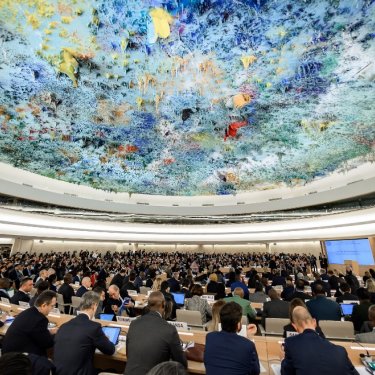New press freedom predators elected to UN Human Rights Council

After several of the world’s worst enemies of press freedom were elected to the United Nations Human Rights Council this week, Reporters Without Borders (RSF) calls on leading democracies to do what they can to ensure that these countries do not dictate future international human rights standards.
Three of the worst press freedom predators – China, Russia and Cuba – will have seats on the Human Rights Council for three years from next January as a result of elections held by the UN General Assembly on 13 October.
Other countries with some of the worst World Press Freedom Index rankings – Uzbekistan (156th), Pakistan (145th) and Mexico (143rd) – are also among the 15 countries chosen to fill the newly vacant seats on the 47-seat council. Only Saudi Arabia failed to get enough votes to fill one of the Asia-Pacific region’s four empty seats.
“It is disgraceful that China, Russia and Cuba are part of a council tasked with defending human rights,” RSF secretary-general Christophe Deloire said. “The only way to avoid ridicule would be for these countries to use their presence on the HRC to make some progress, including with regard to press freedom. It is fortunate that Saudi Arabia was not elected after journalist Jamal Khashoggi’s murder and with 34 journalists still rotting in its prisons.”
The new members include:
China (ranked 177th out of 180 countries in RSF's 2020 World Press Freedom Index), which is currently holding more than 100 journalists and bloggers in its jails, often in conditions that threaten their survival.
Cuba (171st), which continues to be Latin America’s worst press freedom violator, imposing a state monopoly on the media while maintaining pressure on its few independent journalists and bloggers.
Uzbekistan (156th), which has seen some progress in the situation of its media in recent years, although they are still subjected to censorship and surveillance as soon as they criticize the government.
Russia (149th), which harasses all media outlets that don’t toe the official line and has brought the Internet under Kremlin control, while regions such as Crimea and Chechnya have become “black holes” from which little news or information emerges.
France and the United Kingdom, ranked 34th and 35th respectively in the World Press Freedom Index, were elected to represent Europe on the council.
The reelected countries include:
Pakistan (145th), where the media are under the sway of the military and intelligence agencies and are subjected to cyber-censorship, and where journalists are often harassed. Four journalists were killed in connection with their work in 2019.
Mexico (143rd), which continues to be the world’s most dangerous country for journalists. Caught between organized crime and corrupt politicians and officials, journalists who dare to cover sensitive subjects are harassed and threatened, or just gunned down in the street.
Although UN General Assembly Resolution 60/251, which created the HRC, says that, when electing members of the council, member states should “take into account the contribution of candidates to the promotion and protection of human rights,” this week’s elections were only competitive with regard to the Asia-Pacific region, where five countries competed for four seats.
In the other elections (Africa, Eastern Europe, Latin America and the Caribbean, and Western Europe and other states), the number of seats was the same as the number of candidates. The council’s members are elected directly and individually by secret ballot by the majority of the General Assembly’s members.



